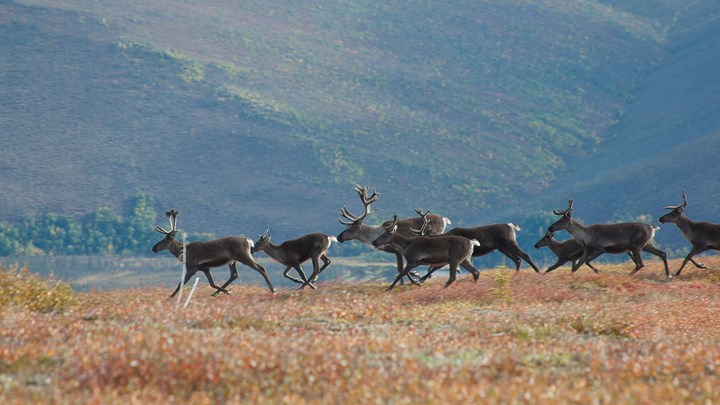
by Cody McLaughlin - Monday, August 14, 2023

The great thing about our American sporting heritage—and coincidentally what anti-hunting extremists fundamentally misunderstand about the pursuit of fish and game in North America—is the principle of conservation and sustainability of our natural resources. From the outlawing of market hunting in the early 1900s to the passage of the Federal Aid in Wildlife Restoration Act of 1937—known commonly as the Pittman-Robertson Act—to the popularity of modern hunting publications such as American Hunter that underscore hunter safety and ethics, conservation is the core of who we are as hunters and what we do—and legal, regulated hunting remains scientifically managed to ensure the overall health of the species.
In that vein, federal subsistence Caribou hunters in Alaska’s Game Management Unit (GMU) 13 received notification July 26 from the U.S Fish and Wildlife Service (USFWS) announcing the closure of the unit’s caribou hunt from Aug. 1 through Sept. 30 due to a dramatic decline in the Nelchina caribou herd population. The move was the result of two emergency wildlife special actions (WSAs): WSA23-01, submitted by the Alaska Department of Fish and Game (ADFG), and WSA23-03, submitted by the Bureau of Land Management and the Ahtna Intertribal Resources Commission. The winter hunt is still slated for Oct. 21, although managers have advised hunters that it too may be closed as the Federal Subsistence Board considers a separate Temporary Special Action for that season. (Nonresident permits were eliminated last year for the same reason.)
According to a statement by the U.S. Department of the Interior, which oversees the USFWS, “The most recent population information shows the Nelchina Caribou Herd in serious decline. The fall 2022 estimate was 17,433 animals, a reduction in 50 percent from the fall 2021 estimate and well below the state management objective of 35,000–40,000 caribou. Additionally, composition metrics for the herd are concerning, with a calf-cow ratio of 16:100 and a bull-cow ratio of 26:100, both of which are well below the management objective of 40:100 for each.”
While the federal government and Alaska have often been at odds regarding the closure of caribou hunts in the state, this situation is unique. To ensure the sustainable and continued viability of the Nelchina caribou herd, the federal closure on BLM land was requested by ADFG, which announced in a separate news release the closure of all Nelchina caribou hunts under state regulations in GMU 13.
According to a letter written by Alaska Board of Game Chair Jerry Burnett, the board requested a closure of all Nelchina caribou hunts in GMU’s 11, 12 and 13 for conservation purposes under the powers granted the state under ANILCA, the Alaska National Interest Lands Conservation Act, citing recent survey data indicating there is no harvestable surplus of Nelchina caribou at this time.
Conservation is at the core of legal, regulated hunting and what we hunters do. It can be a challenge when that core ethos comes into conflict with our quest to fill the freezer with healthy, sustainable meat, but the key word here is sustainable, and we as hunters do not lose sight of that. As the NRA notes in its book How to Talk about Hunting: Research-Based Communication Strategies, based on groundbreaking research funded by the NRA Hunters’ Leadership Forum, “No species has become extinct in the era of modern wildlife management because of regulated hunting. This is the reason there are so many laws and regulations on seasons, limits and methods of hunting.” The book goes on to state that “hunting provides wildlife management benefits, including the benefits to the ecological habitat as a whole and to many non-game species” and underscores that “hunting is properly regulated, and there are rules and regulations in place to ensure fair and moral hunting that also protects wildlife species as a whole.”
Hunters should contact the Bureau of Land Management’s Glenallen Field Office for the status of the hunt at 907-822-3217.
About the Author
Cody McLaughlin is a conservationist and conservative thought leader on public policy issues including hunting, fishing, gun rights, free-market tax and wage policy and the environment. He recently launched Trout Stream Studios as an executive producer for podcasts and livestreams in the hunting and veterans’ affairs spaces and is an advertising consultant for conservative political causes, managing clients’ digital communications and online presence. He serves on the board of the Alaska Outdoor Council, the Last Frontier’s State NRA Affiliate, and is a former board member and spokesman of the New Jersey Outdoor Alliance.
E-mail your comments/questions about this site to:
[email protected]
Proudly supported by The NRA Foundation and Friends of NRA fundraising.
